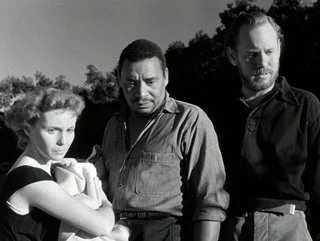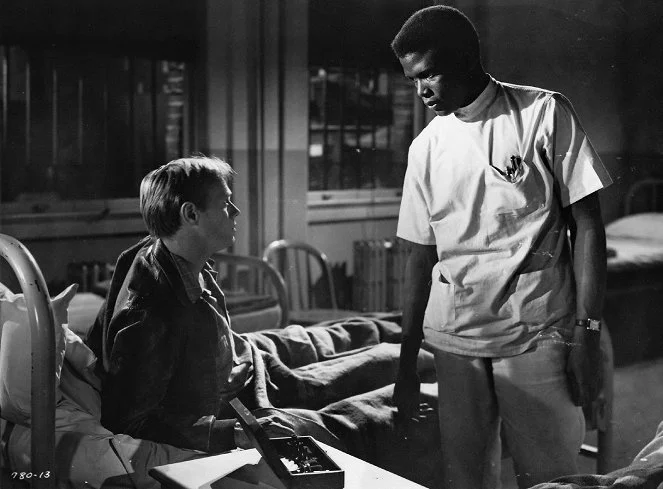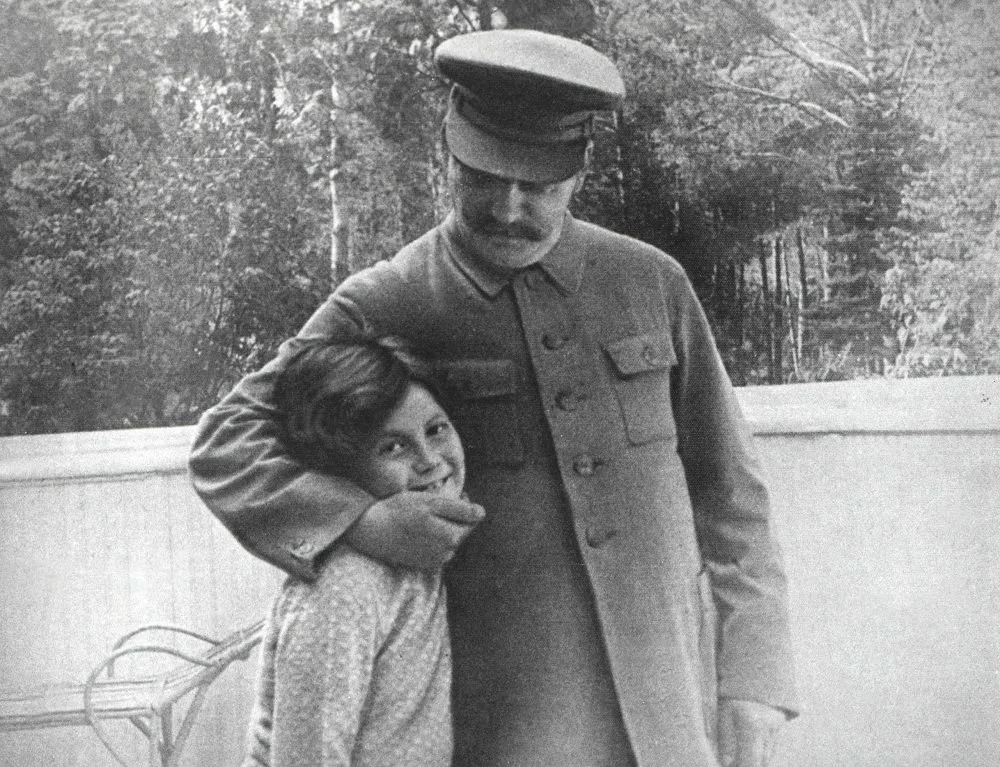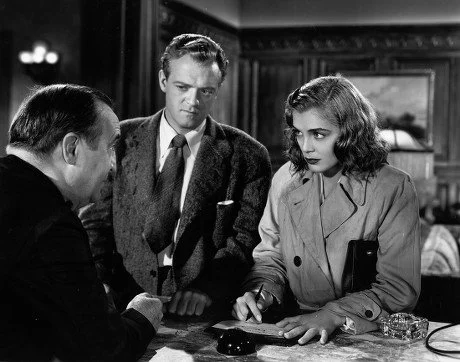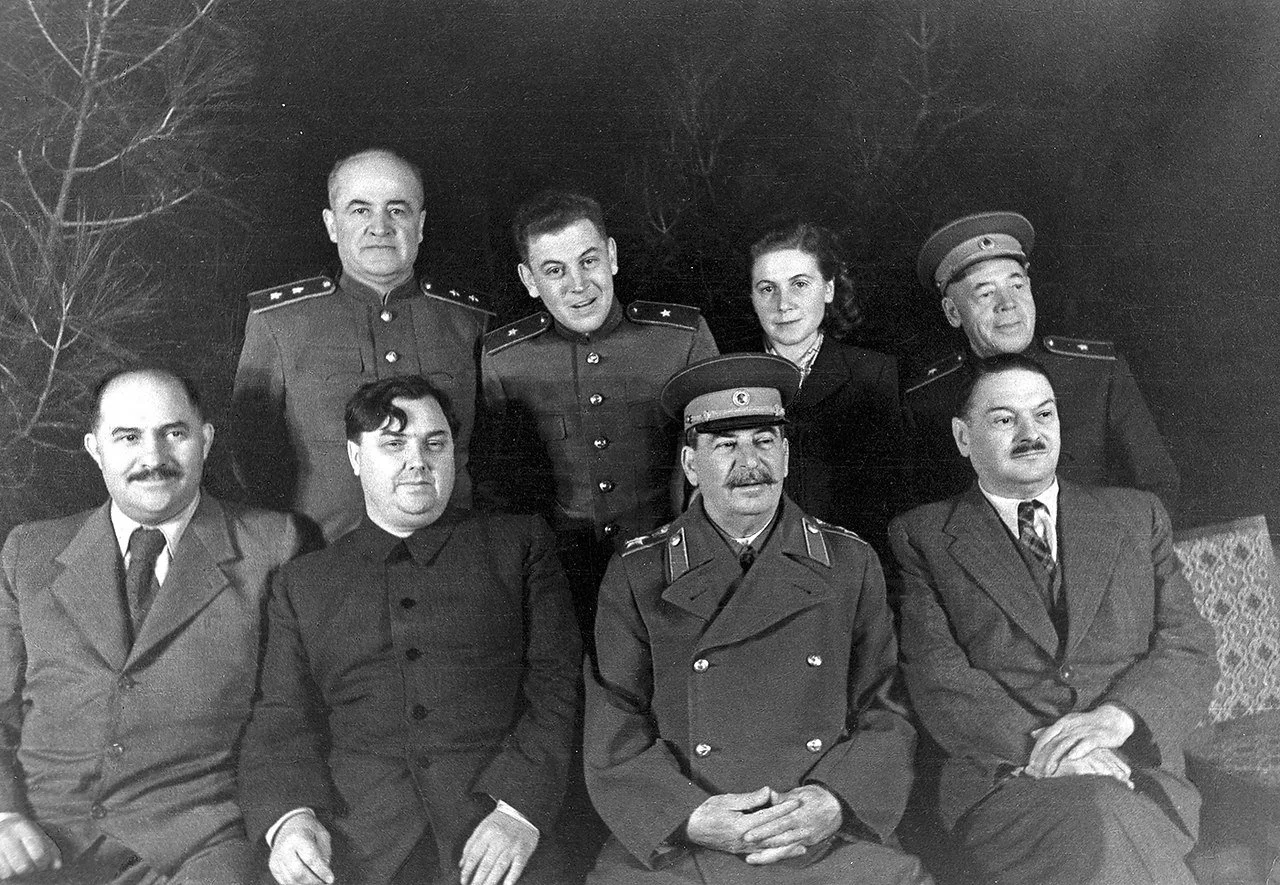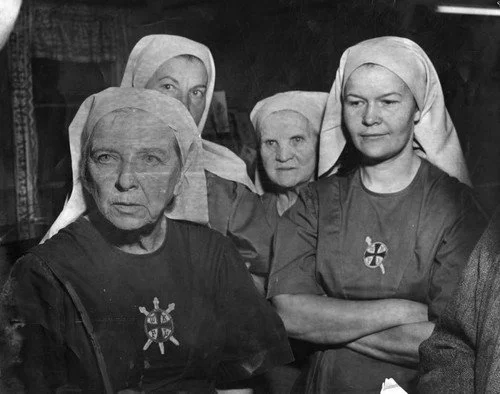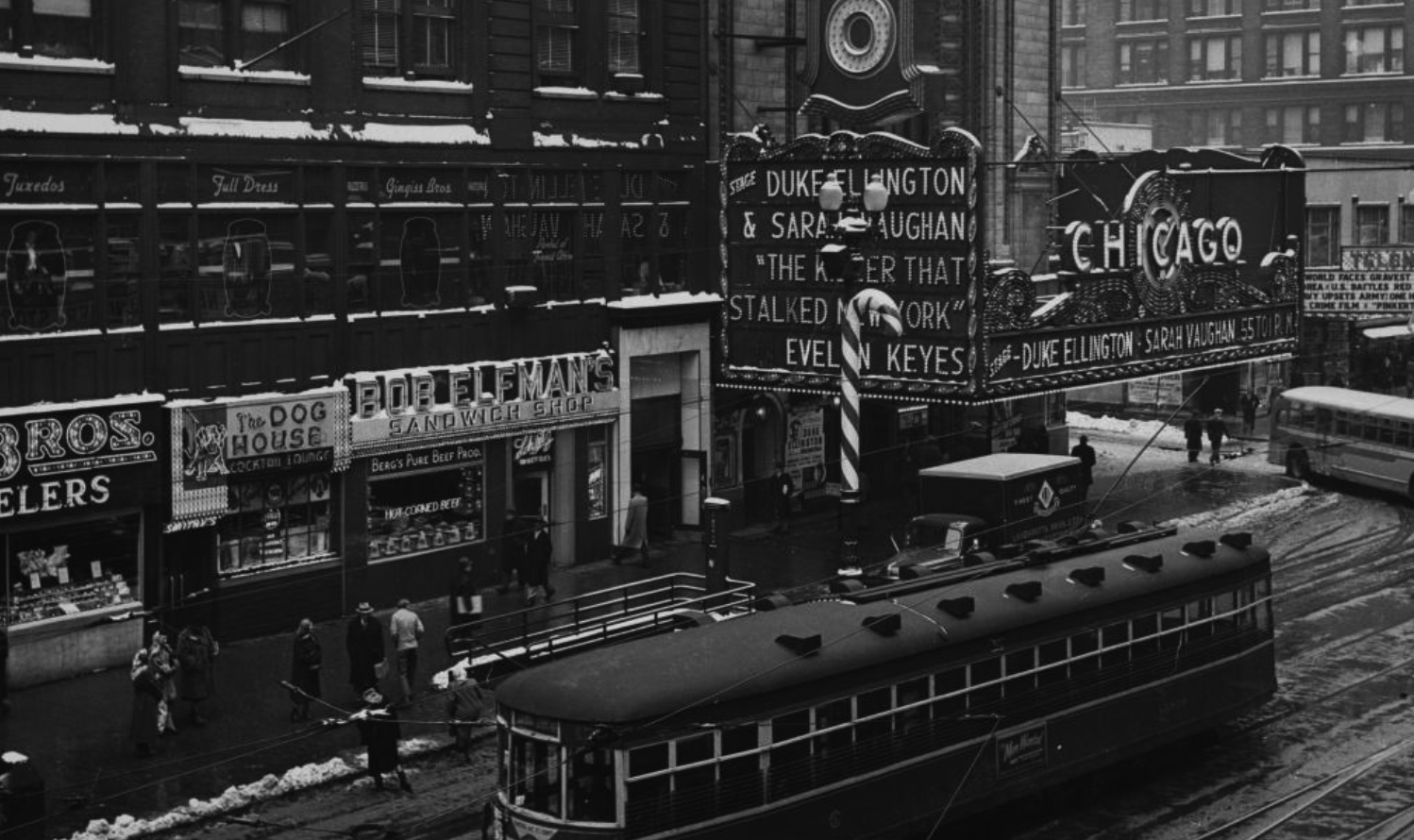BTS: Don’t Bother to Knock
Marilyn Monroe was well on her way to becoming a household name in 1952, but it didn’t happen overnight. Starting over at rock-bottom after the death of her close friend and talent agent, Johnny Hyde in 1950— she managed to claw her way to the top. Don’t Bother to Knock was her first starring role, an often forgotten stopover before fame turned her life upside down.
The Banishment of Untermeyer
Louis Untermeyer, accomplished poet and literary figure, joined a celebrity panel on the CBS game show What’s My Line? in 1950. One year later, his past unexpectedly caught up with him.
REVIEW: FIVE
In 1951, radio legend Arch Oboler directed a low-budget sci-fi flick called FIVE. It was the first attempt to show the aftermath of a nuclear war on film— a terrifying notion for many Americans struggling to deal with the reality of the USSR having successfully built their own atomic weapon.
REVIEW: NO WAY OUT
Joseph L. Mankiewicz’s No Way Out starred Sidney Poitier as the sole black physician at a white hospital, tasked with tending to a wounded, racist criminal. Not a major achievement financially— if the name of the game was to confront the ugliest side of postwar American society by ruffling some feathers in the South— it certainly successful.
“Hollywood for Dewey”
Hollywood celebrities came out to support New York Governor Thomas E. Dewey’s presidential bid like never before in 1948. Yet, against all odds, President Harry Truman still pulled off a historic upset that November. What went wrong?
REVIEW: A RECKLESS MOMENT
Walter Wanger’s A Reckless Moment (1949), starred Joan Bennett as a suburban housewife attempting to protect her family from vicious criminals. Tragically, the on-screen drama doesn’t hold a candle to the unexpected crisis that erupted off-screen shortly after its release.
REVIEW: The Snake Pit
In 1948, actress Olivia de Havilland was at the height of her career. Her only film that year, The Snake Pit, was yet another triumph— but why were audiences so shocked by it?
The Tale of the Red Princess
In March 1967 a mysterious Russian woman arrived at the US Embassy in New Delhi, India and requested political asylum. US Ambassador Chester Bowles’s response, made in haste, challenged diplomatic relations between all three of the nations involved. Who was she? What was she running from?
REVIEW: Crossfire
Crossfire (1947) was a thriller from director Edward Dmytryk about a soldier who kills a jewish man. Brutally stark and firmly anti-prejudice, the film is mostly remembered today as the calm before the storm— the storm being the HUAC hearings of the late 1940s and 1950s.
REVIEW: The Strange Love of Martha Ivers
The Strange Love of Martha Ivers arrived in 1946, at the height of Hollywood’s postwar fascination with shadows and secrets. The film’s tangled story of guilt, power and corruption is unforgettable, but its real intrigue lies in the positioning of Lizabeth Scott— a hand-picked star launched into the spotlight by producer Hal Wallis.
Vasily, Son of Stalin
Vasily Stalin, son of one of the most powerful and frightening dictators of the 20th century, disappeared after his father’s death in 1953. Where did he go? How and why did the new leadership of the USSR turn against him?
REVIEW: Detour
Detour (1945), was an improbable and immortal Hollywood accident. Produced quickly and cheaply by “Poverty Row” studio PRC, by director Edgar G. Ulmer, it was an adaptation of Martin Goldsmith’s pulp novel, largely ignored by the major press at the time.
The Fountain of the World
Cold War anxiety gave way to quite a few religious cults in the United States, most notably during the 1960s. One of the first, the WKFL Fountain of the World group from California, was nearly broken-up in 1958 by the sudden, unexpected assassination of their leader, Krishna Venta.
The Campaign that Wasn’t
In late 1960 erratic novelist Norman Mailer, who had spent most of the previous decade lost in a haze of booze and drugs, intended to run for mayor of New York City. But before he could get his campaign off the ground, a nightmare of his own design permanently aborted his chances.
Ambassador Andropov and the Hungarian Uprising
Yuri Andropov became General Secretary of the CPSU, leader of the USSR, in November 1982. Less than two years later he was dead. His brief tenure, sandwiched in between the lengthy Brezhnev era and Gorbachev’s perestroika, has unfairly relegated him to the dust bin of history. This is how his story began.
Chicanery, 1960 Part VI
The final installment of our Chicanery, 1960 series. Vice President Nixon certifies the controversial vote tally after months of fraud allegations. JFK is inaugurated, and the United States enters a new, strange era.
Chicanery, 1960 Part V
Southern “Dixiecrats” plot a faithless coup as certification of the 1960 U.S. presidential election approaches. At the same time, in the newly confirmed state of Hawaii, confusion complicates the final tally.
Chicanery, 1960 Part IV
Back in Chicago, Sam Giancana’s murky career in organized crime is put under a microscope, as is his potential connection to Kennedy’s electoral victory in November, 1960.
Chicanery, 1960 Part III
Prior to his electoral victory in the fall, JFK out-maneuvers Senator Lyndon Johnson for the Democratic nomination in June 1960. Within Johnson’s past, questions are raised about the ethics of the Texas Democratic Party.
Chicanery, 1960 Part II
In the decades of American history leading up to the election of 1960, Richard J. Daley fights his way up from the working-class neighborhood of Bridgeport, Chicago to the mayor’s office. Meanwhile, the Republicans start digging for any sign of voter fraud in Illinois following Nixon’s narrow defeat.


